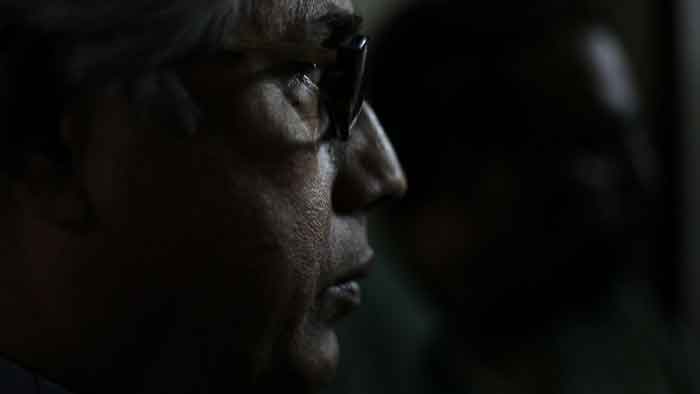
In our student days a large part of the year was consumed by three long spells of holidays. The year started after the Christmas vacations which were long, but not as long as the summer vacations in May-June. The Puja vacations were the shortest but in many ways the most exciting. Durga or Kali Puja in the small towns of south Bihar were organized in a style quite different from that in Calcutta. The glamour and noise that one associated with the festivities in the big city were yet to infect the homes and pandals of, say, Jamshedpur, Ranchi or Dhanbad. I guess the story was the same in Patna, or in the small towns on the other side of the Ganges. I am speaking of the ’fifties and the ’sixties.=
My brothers, small sister and I fantasized about the event months in advance. New clothes and new shoes were a part of our dreams; so were generous hand-outs of pocket money to be spent during the festival and late-night jatra performances. Food was always my passion and I remember spending most of what I got from my parents at Jatin’s or Horibola’s. The two were institutions as far as I was concerned.
Horibola – not much of a name when it comes to looking for meaning or sense in it – got his name, I think, from his unkempt appearance and general loony lifestyle. (God-fearing Hindus cry out Horibol or take the name of Hori – meaning the Lord – whilst carrying the corpse of a dead man to the cremation ground.) Whatever the reason for Horibola being called Horibola, it stood to his great credit that the chanachoor he sold, spiced with shredded onion, green chillies and a twist of lemon, was the talk of our part of the town. It was much later that my peers and I graduated to Fakira’s even spicier and hotter brand of the same stuff.
But Jatin was as different from Horibola as, let’s say, Durga is from Kali. The first dissimilarity was that Jatin sold ghoogni and not chanachoor; the second was that in his simple, clean dhoti and half-sleeves, he was sartorial elegance personified; and the third was that while one could always coax a little extra out of Horibola, Jatin was obnoxiously stingy. The ghoogni was perfect, but he would habitually add hot clean water to prevent it from being exhausted as long as there were eager customers around. But by some strange culinary chemistry at which the man seemed to be a master, the taste never suffered. Jatin also sold aaloordom and chops with mutton, vegetable or potato fillings, each as good as it could get. Nothing made his Daliesque moustache – pointed at both ends – quiver with greater satisfaction than when a regular customer would compliment him on his cooking.
Small towns invariably throw up such colourful characters who easily grow on you because you have the space, the time, the leisure to keep watching them. And it was during the Pujas that they would come to life even more effusively than the rest of the year. I had the privilege of being part of a middle-class milieu with a lacing of the working-class experience. So, there was nothing earthshaking about a ten- or twelve-year-old spending Puja nights stretching till dawn, watching jatra performances by local groups or, at times, by troupes from Calcutta. Binapani Opera, New Ganesh Opera and other well-known jatra companies with their offices in the Chitpur area of Calcutta would easily win the hearts of the spectators with their acting and their music.
Attending a jatra performance was a ritual no way less elaborate than those conducted by the priests to appease the goddess on her tiger mount. At around eight or so in the evening – on Shoptomi, Oshthomi and Nobhomi – we would eat dinner and then pick our way to the puja pandal where durries would be spread all around a raised square platform. One had to be clever and quick to get a good ringside seat. Such a vantage position was also necessary to avoid latecoming drunken fools, who were an inseparable part of the tamasha. Once, it so happened that a crowded performance had to be stopped for a while following an uproar in the audience caused by an inebriated man grinding his half-finished biri on a fellow-spectator’s ankle taking it to be terra firma!
At some point between nine and ten, the musicians and the prompters would take up their respective positions on the raised platform. The musicians would begin tuning their instruments, taking the occasional break to chat and joke among themselves or take a sip of tea from small earthen cups (bhaar). Another half an hour would elapse before a male performer improbably dolled up as a woman – complete with stained lips, rouged cheeks, kohl-ed eyes and trailing tresses made of jute – would come gyrating centrestage to whistles and cat-calls.
The restive audience, by now swollen beyond counting, was immediately arrested by the great charmer who swayed his hips like a singing village belle in Hindi movies, pounded his feet with gusto, and swung his arms as if embroidering the air. There was the occasional whistle or rush of noise, but the music and the energetic movements of limbs and torso were more than equal to the naughtiness.
There was a mystery about jatra performers. Theirs seemed charmed lives. One who could be Siraj-ud-doulah one night and a poor fakir or sadhu the next and a golden-hearted drunkard on the third, was surely a magician out of this world. The mystery persisted till I was ready to leave for college in the big city. It was there that I discovered that jatra players travelled in luxury coaches; that performances had to be paid for to be seen and were held in enclosures; that all kinds of tricks with light and sound were employed for what people called heightened effect. If I haven’t attended a jatra night for the past several decades, it is largely because my childhood memories of an unsophisticated, spontaneous folk form, of uninhibited dancing into the night and all at no cost to the pocket, have acted as a fierce deterrent.
The show goes on – as it must. But the mystery, the mesmerizing magic wrought by an all-too-willing suspension of disbelief, the total surrender to illusion for as long as the show was in progress and sometimes long after it was over, are gone. The Pujas, as we knew it in our childhood and even in our youth, is all but dead.
The small towns of south Bihar, now a part of Jharkhand, have fattened into cities that know not where they are going. Along with the rest of the world, they have become participants in a mad, mindless race for what they perceive to be progress and development. The quiet, the charm, the beauty of smallness and the green, the winding river and fresh air, and close neighbourliness have been replaced by an all-pervading anonymity. Extreme competitive attitudes have taken over norms and notions of healthy rivalry. Home-grown poets and philosophers are ridiculed or, at best, tolerated; it is not uncommon to get the feeling that anything smelling of what lies beyond familiar frontiers is necessarily superior and, as such, worth espousing. And so, the small-town Puja has lost out to alien inroads.
( Vidyarthy Chatterjee writes on cinema,society, and politics.)
SIGN UP FOR COUNTERCURRENTS DAILY NEWSLETTER

















































